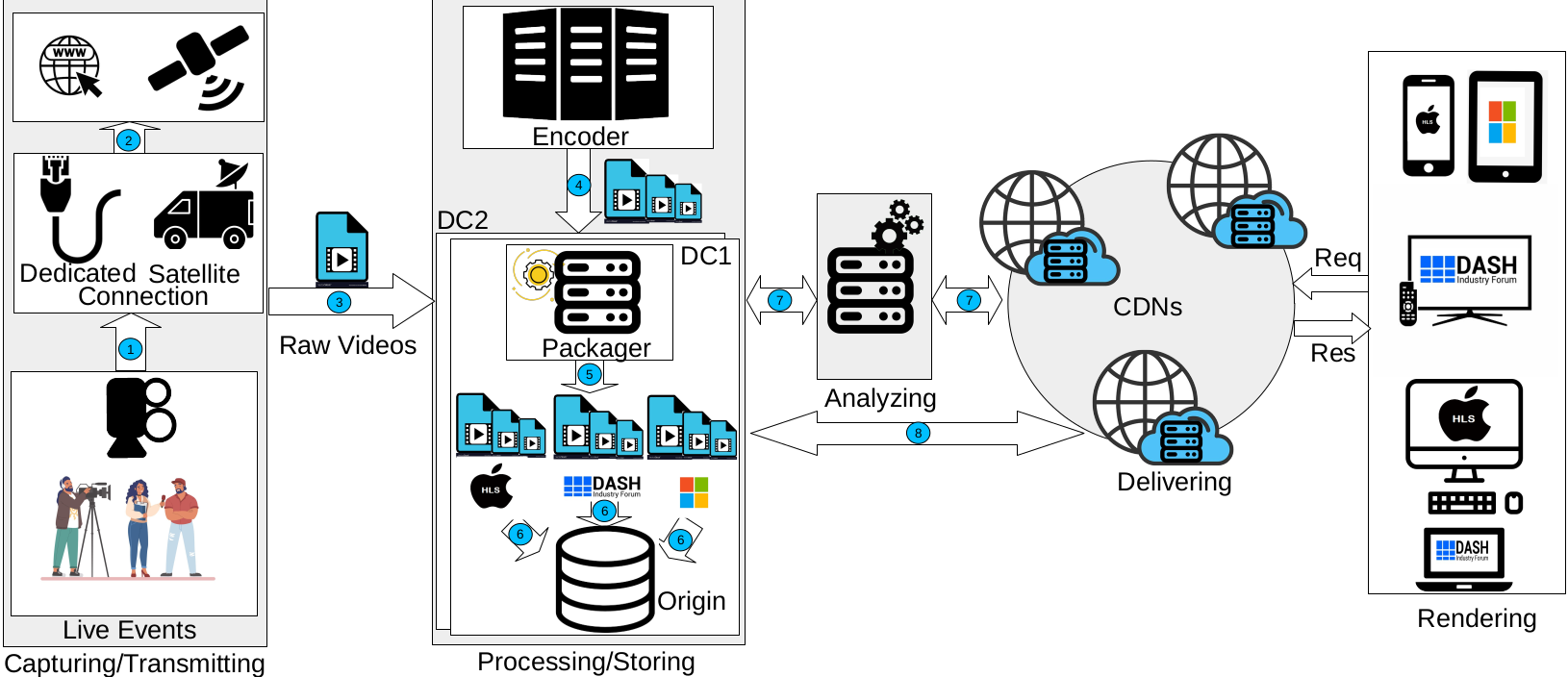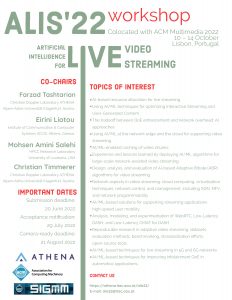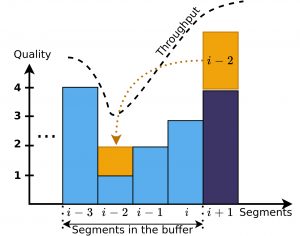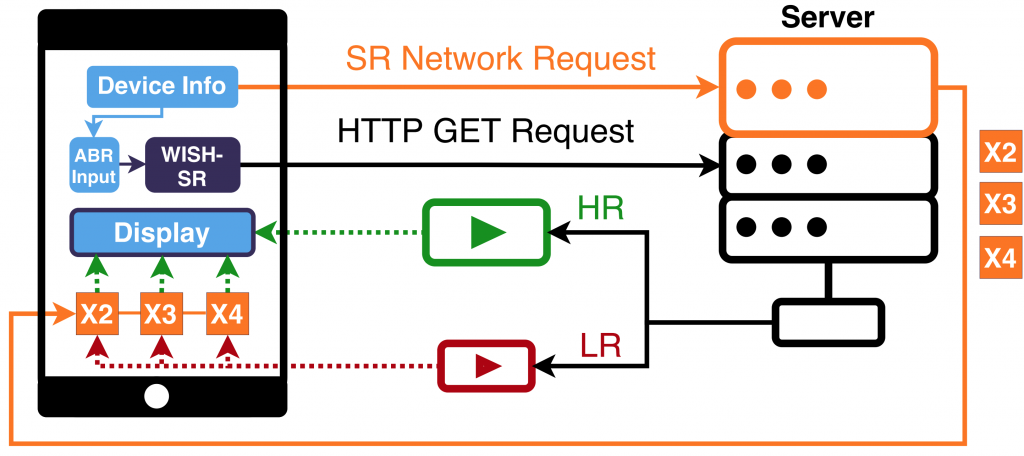The 13th ACM Multimedia Systems Conference (ACM MMSys 2022)
June 14–17, 2022 | Athlone, Ireland
Reza Shokri Kalan (Digiturk Company, Istanbul), Reza Farahani (Alpen-Adria-Universität Klagenfurt), Emre Karsli (Digiturk Company, Istanbul), Christian Timmerer (Alpen-Adria-Universität Klagenfurt), and Hermann Hellwagner (Alpen-Adria-Universität Klagenfurt)
Over-the-Top (OTT) service providers need faster, cheaper, and Digital Rights Management (DRM)-capable video streaming solutions. Recently, HTTP Adaptive Streaming (HAS) has become the dominant video delivery technology over the Internet. In HAS, videos are split into short intervals called segments, and each segment is encoded at various qualities/bitrates (i.e., representations) to adapt to the available bandwidth. Utilizing different HAS-based technologies with various segment formats imposes extra cost, complexity, and latency to the video delivery system. Enabling an integrated format for transmitting and storing segments at Content Delivery Network (CDN) servers can alleviate the aforementioned issues. To this end, MPEG Common Media Application Format (CMAF) is presented as a standard format for cost-effective and low latency streaming. However, CMAF has not been adopted by video streaming providers yet and it is incompatible with most legacy end-user players. This paper reveals some useful steps for achieving low latency live video streaming that can be implemented for non-DRM sensitive contents before jumping to CMAF technology. We first design and instantiate our testbed in a real OTT provider environment, including a heterogeneous network and clients, and then investigate the impact of changing format, segment duration, and Digital Video Recording (DVR) window length on a real live event. The results illustrate that replacing the transport stream (.ts) format with fragmented MP4 (.fMP4) and shortening segments’ duration reduces live latency significantly.

Keywords: HAS, DASH, HLS, CMAF, Live Streaming, Low Latency







 Authors: Minh Nguyen (Christian Doppler Laboratory ATHENA, Alpen-Adria-Universität Klagenfurt, Austria), Christian Timmerer (Christian Doppler Laboratory ATHENA, Alpen-Adria-Universität Klagenfurt, Austria), Stefan Pham (Fraunhofer FOKUS, Germany), Daniel Silhavy (Fraunhofer FOKUS, Germany), Ali C. Begen (Ozyegin University, Turkey)
Authors: Minh Nguyen (Christian Doppler Laboratory ATHENA, Alpen-Adria-Universität Klagenfurt, Austria), Christian Timmerer (Christian Doppler Laboratory ATHENA, Alpen-Adria-Universität Klagenfurt, Austria), Stefan Pham (Fraunhofer FOKUS, Germany), Daniel Silhavy (Fraunhofer FOKUS, Germany), Ali C. Begen (Ozyegin University, Turkey)




